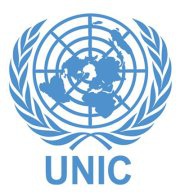- Home - News
- TWI News | TV
- Polls
- Year In Review
- News Archive
- Crime & Punishment
- Politics
- Regional
- Editorial
- Health
- Ghanaians Abroad
- Tabloid
- Africa
- Religion
- Election 2020
- Coronavirus
- News Videos | TV
- Photo Archives
- News Headlines
- Press Release
Business News of Wednesday, 25 June 2014
Source: GNA
UNIC launches 2014 World Investment Report

The United Nations Information Centre (UNIC) on Tuesday launched the 23rd annual World Investment Report (WIR), released by the United Nations Conference on Trade and Development (UNCTAD). First published in 1991, the WIR is an influential source of economic intelligence for policy makers and investors worldwide.
The 2014 report: “Investing in the Sustainable Development Goals (SDGs) – an Action Plan,” provides a comprehensive review on global and regional investment and policy trends, and presents an outlook for private sector investment in the post-2015 Sustainable Development Goals.
The aim is to ensure that after the 2015 date set for the Millennium Development Goals, the achieved goals are sustained and that strategies are in place to ensure that those yet to be achieved are worked upon to sustain the gains made over the years.
The 2014 WIR report, therefore, focuses on how corporations can contribute to the realisation of the post-2015 Sustainable Development Goals through additional and innovative financing, investment and responsible business practices. It presents the latest trends in foreign direct investment, providing key economic intelligence for policy makers.
Mr Philip Cobbina, a Lecturer in Business Policy and Strategy and International Business Management, at Ghana Institute of Management and Public Administration, who presented highlights, said report provides action packages and strategic frameworks for investing in the SDGs, which could be translated into action by Ghanaian investors.
According to him the United Nations Sustainable Development Goals will need to bridge the large investment gap in private investment in sustainable sectors concerning food security, infrastructure industries and climate change among others. This, he said, is essential for the realisation of the future SDG development framework.
He indicated that the 2014 WIR comes at an important moment when the international community is making a final push to achieve the Millennium Development Goals by the target date of 2015. He said the report is part of UNCTAD’s contribution towards ongoing global discussions prior to the World Leaders’ Investment Summit to be held in Geneva, Switzerland in October this year.
Mr Cobbina said the report provides an in-depth analysis, strategic development options and practical advice for policymakers and others on how to maximise the benefits of foreign development investment (FDI) and also galvanise support from the private sector to expand investment in areas including the manufacturing and services sectors.
This is essential to ensure more inclusive growth and sustainable development, he said. The report, he said, states that Africa maintained its momentum of growth over the period under review amidst the numerous challenges posed by the global economic He said credible and objective information on FDI could contribute to successes in the twin endeavours.
Mr John Kwame Mensah Zigah, Acting Treasurer at Agriculture Development Bank, said the bank had remained resolute in its contribution towards sustainable development in areas such as education, food security, agriculture and health among others.
He admitted that unsustainability has resulted from inequitable distribution of the natural resources of the country, therefore the need to shift from the extractive sector to develop other sectors is important for employment generation. He said the Bank currently provide support to small and medium scale enterprises and other private sector players in diverse areas, to expand.
UNCTAD regularly collects published and unpublished national official FDI data directly from central banks, statistical offices or national authorities on an aggregated and disaggregated basis for its FDI/TNC database.
These data constitute the main source for the reported data on FDI flows. These data are further complemented by the data obtained from other international organisations such as the International Monetary Fund, World Bank, Organisation for Economic Co-operation and Development, Economic Commission for Europe and the Economic Commission for Latin America and the Caribbean as well as UNCTAD´s own estimates.










